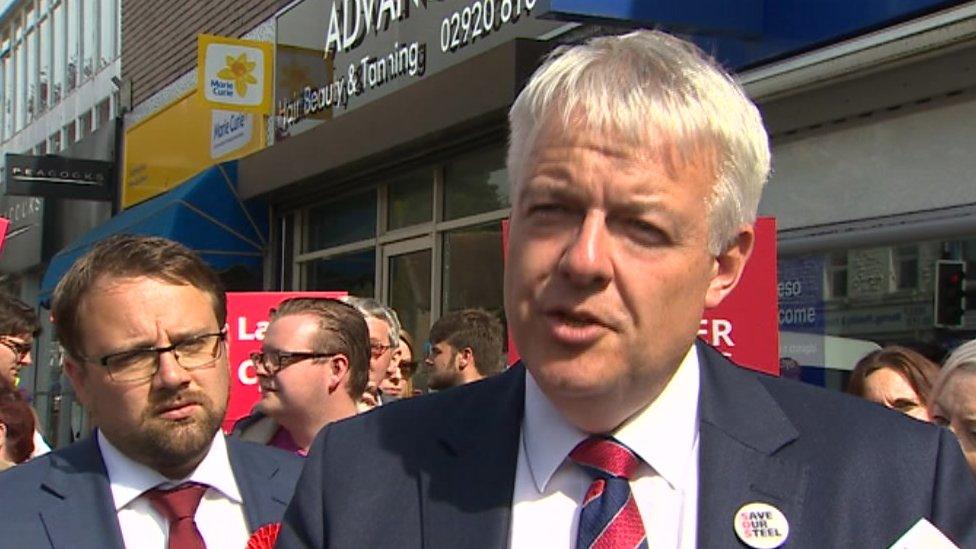Elections: Labour's Sadiq Khan promises a 'better' London
- Published
"My name is Sadiq Khan and I'm the mayor of London" - London mayor inauguration
Labour's Sadiq Khan has vowed to do all in his power to make London "better", as he was sworn in as the new mayor.
Referring to his council estate roots, Mr Khan, the city's first Muslim mayor, said he wanted all Londoners to have the same opportunities he has had.
It comes as Defence Secretary Michael Fallon defended Conservative Zac Goldsmith's campaign, describing it as the "rough and tumble" of politics.
The much-criticised campaign questioned Mr Khan's alleged links to extremists.
Mr Khan beat Mr Goldsmith, by 1,310,143 votes to 994,614, giving him a larger personal mandate than either of his predecessors, Boris Johnson and Ken Livingstone.
He has announced he will step down as MP for Tooting, meaning a by-election will be held to elect a new representative in Parliament.
The former Labour minister's victory in London ends eight years of Conservative control of City Hall.
It has also given a boost to Labour after its poor performance in Scotland's election which saw it slump to third place behind the Conservatives.
Following on from its London success, Labour has also won Bristol's mayoral contest, with candidate Marvin Rees beating the incumbent, independent George Ferguson, by a comfortable margin.
Labour leader Jeremy Corbyn welcomed Mr Rees' victory, saying in a tweet: "Another Labour mayor who will stand up for their city!"
But Mr Corbyn was absent from Mr Khan's swearing-in ceremony earlier on Saturday.
Mr Khan - who nominated but did not vote for Mr Corbyn in the Labour leadership contest - said he was "not sure" why, adding: "We'll have to find out what he was doing."
Michael Fallon is repeatedly asked if he trusts Sadiq Khan with the safety of Londoners

Corbyn's absence
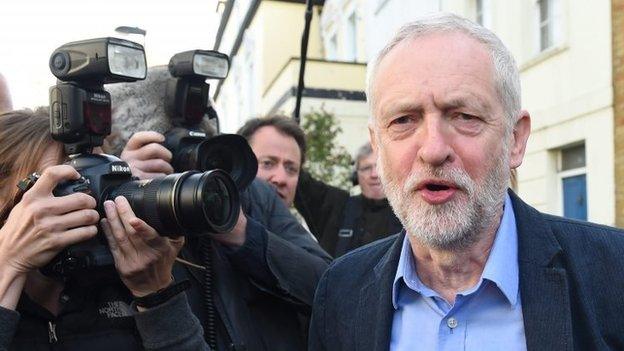
By BBC political correspondent Alex Forsyth
There is no specific form on these type of things, but this mayoral election was Labour's biggest success in these recent elections, so it is pretty unusual that Corbyn was not at Mr Khan's signing-in ceremony.
And by contrast we are expecting Mr Corbyn to attend an event to celebrate the election of the Labour candidate, who has just won the role of Bristol mayor.
Read into that what you will, but I think it raises questions about how Sadiq Khan and Jeremy Corbyn will work together.

Meanwhile, Nicola Sturgeon introduced the SNP's new batch of MSPs as the party celebrated its third successive victory in the Holyrood election - though the result left the SNP two seats short of a majority in the parliament.
In other election news, the Northern Ireland election count has come to an end, and the Democratic Unionists remain the biggest party in assembly, with Arlene Foster continuing as first minister.
'Burning ambition'
As he swore in as London mayor in a ceremony in Southwark Cathedral, Mr Khan, the son of Pakistani immigrants, said: "I'm only here today because of the opportunities and helping hand that our city gave to me and my family.
"My burning ambition for our city, that will guide my mayoralty, is to ensure that all Londoners get the opportunities that my city gave to me."
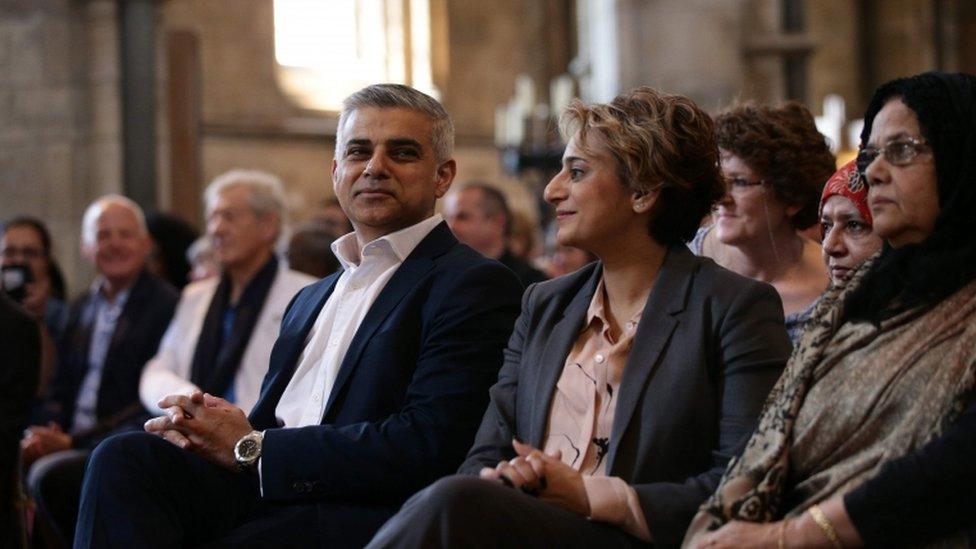
Sadiq Khan sits next to his wife Saadiya at his swearing-in ceremony
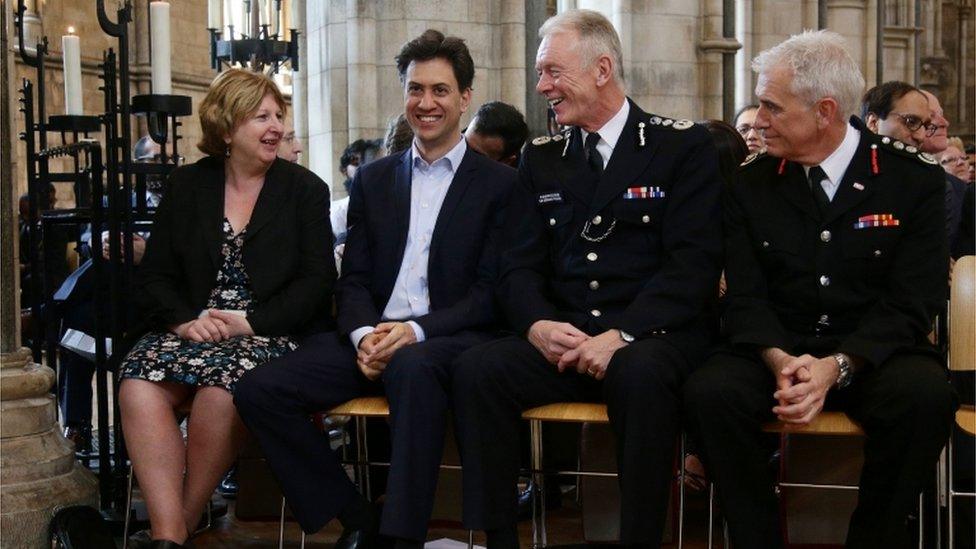
Former Labour leader Ed Miliband and Met Police Commissioner Bernard Hogan-Howe were among the attendees
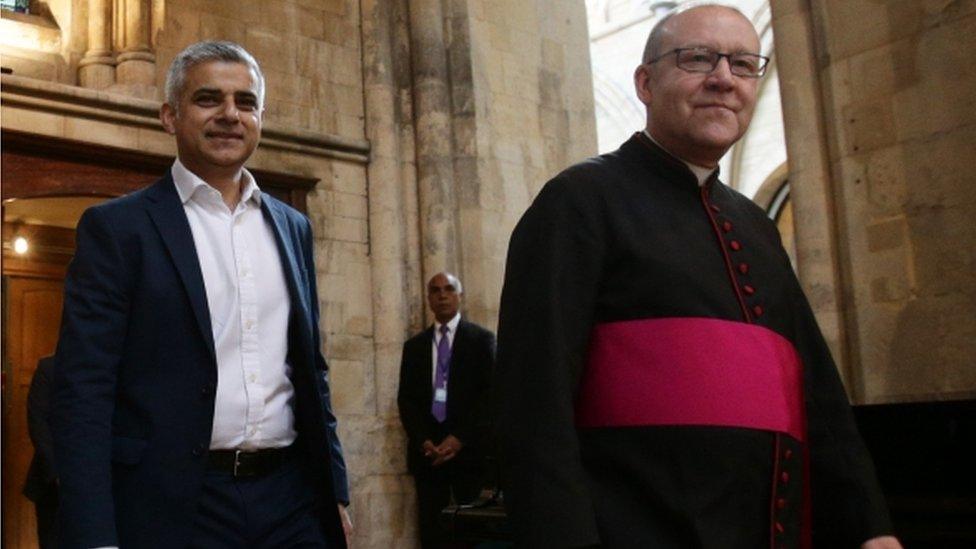
The new London mayor was introduced by the Dean of Southwark Cathedral, The Very Reverend Andrew Nunn
"I promise you I will always do everything in my power to make our city better. I will be a mayor for all Londoners," he added.
He also pledged to lead "the most transparent, engaged and accessible administration London has ever seen".
'Rough and tumble'
Speaking later, Mr Khan said he was disappointed by the "negative and divisive" nature of Mr Goldsmith's mayoral campaign, which focused on Mr Khan's alleged links to Islamic extremists. But his victory, he said, was a rejection of the politics of "fear".
Several senior Conservatives - including former cabinet ministers Ken Clarke and Baroness Warsi - have, like Labour, voiced criticism of the way the contest was fought, while Mr Goldsmith's sister Jemima said, external it "did not reflect who I know him to be".
Sadiq Khan 'deeply humbled' by London Mayor win
But Defence Secretary Michael Fallon - who called Mr Khan a "Labour lackey who speaks alongside extremists" during the race - defended the Conservatives' approach, saying it was legitimate to put a candidate under scrutiny.
"Both candidates were asked questions about their backgrounds, their personalities, their judgements, the people they associate with. That's the nature of our democracy and the rough and tumble of politics," he said on BBC Radio 4's Today.
Repeatedly challenged over whether he believed Mr Khan was a security risk to London, Mr Fallon said: "London is safe with a Conservative government working with the new mayor of London."

Who is Sadiq Khan?
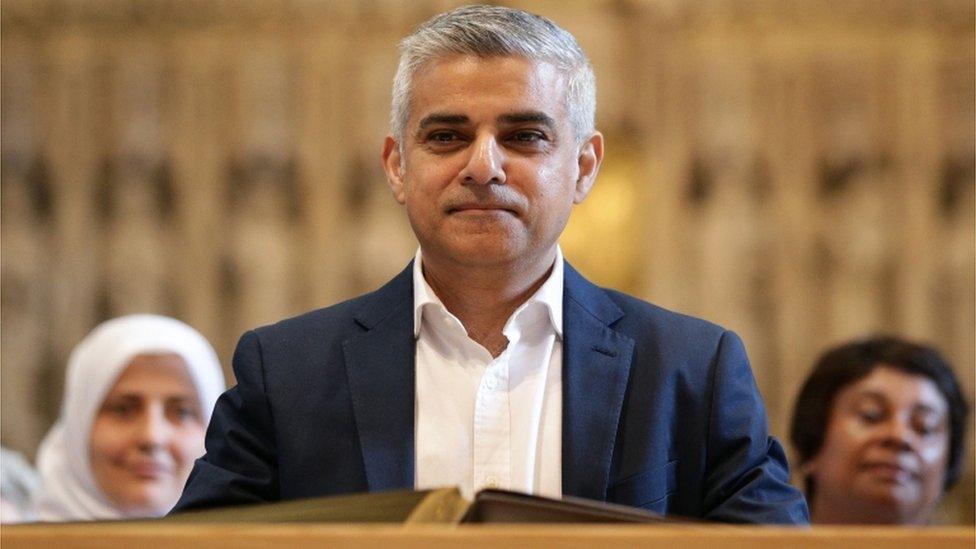
The new mayor did not have a privileged start in life. He was one of eight children born to Pakistani immigrants, a bus driver and a seamstress, on a south London housing estate.
From an early age, he showed a firm resolve to defy the odds in order to win success for himself and the causes important to him.
That resolve has won him the biggest personal mandate in the UK, a job with wide-ranging powers over London and with enormous emotional significance for him.
Some question whether he has the experience or record of good judgement necessary for the role.
He insists he is there to represent all Londoners and to tackle inequality in the capital, and now he has the chance to prove it.

Labour's Tottenham MP David Lammy said Mr Khan had risen above what he described as "smears".
"If we ever get a prime minister of colour it will be because of what Sadiq Khan has achieved," he told Today.
'New powerbase'
Meanwhile, John McTernan, Tony Blair's former strategist, told the BBC Mr Khan's election showed Labour can "win a victory" and was a good result for Mr Corbyn in the "short term".
But he said the campaign run by Mr Khan - who distanced himself from the Labour leader during the contest - was "totally independent" of Mr Corbyn and the politics he articulated.
"This creates a new powerbase in the Labour party," he said.
Tap here, external to search for election results in your area.
In total, 2,747 seats in English councils - spanning metropolitan boroughs, unitary authorities and district councils - were up for grabs in Thursday's elections, in the single largest test of political opinion before the next general election, scheduled for 2020.
Labour's vote share is down about 6% on average on 2012 - the last time the seats in England were contested - with 24 fewer councillors. But its share is up 4% on the general election in key wards, with the Conservatives down by a similar amount.
In Wales, Labour's vote is down by eight points overall, the Conservative vote is down by three points, and Plaid Cymru is up by two points. UKIP increased its vote by 12 points and saw seven candidates elected.
David Cameron said the party's second place in Scotland and its showing in England, where it took control of Peterborough Council and won council seats in key Westminster marginals such as Dudley and Nuneaton, represented a good result for a party which had been in government for six years.
Talking up Labour's performance, Mr Corbyn said it had done better than expected by retaining several councils in southern England, adding: "We hung on and we grew support in a lot of places."
- Published18 April 2016

- Published7 May 2016
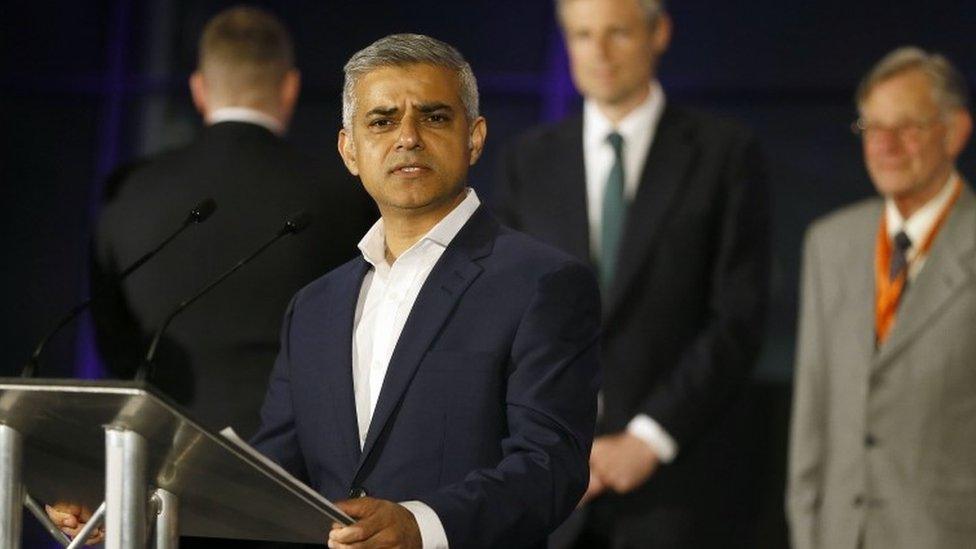
- Published6 May 2016
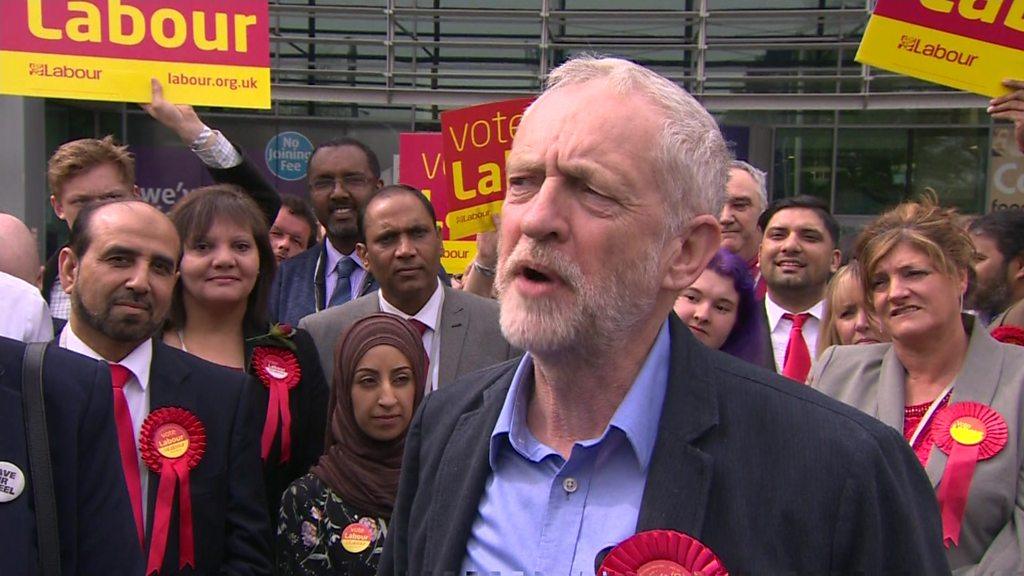
- Published9 May 2016
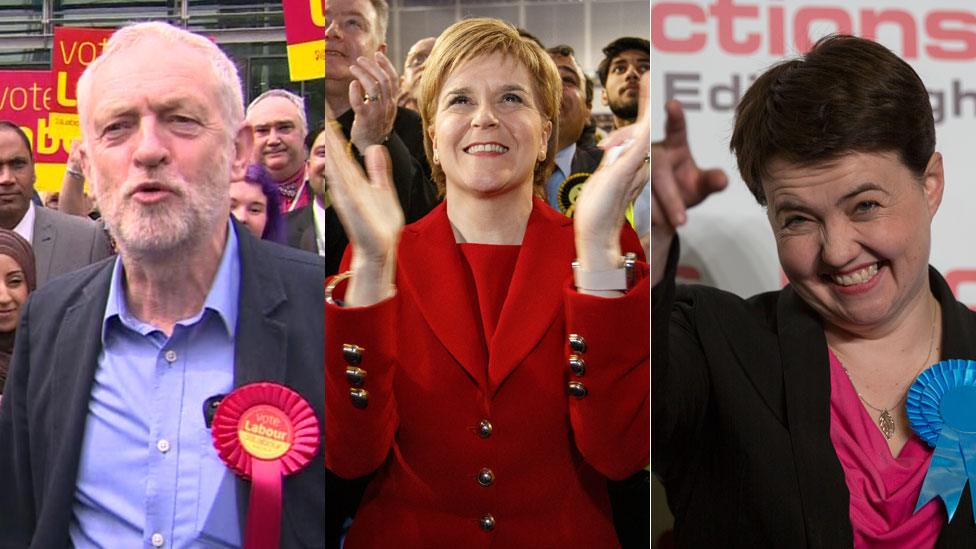
- Published6 May 2016
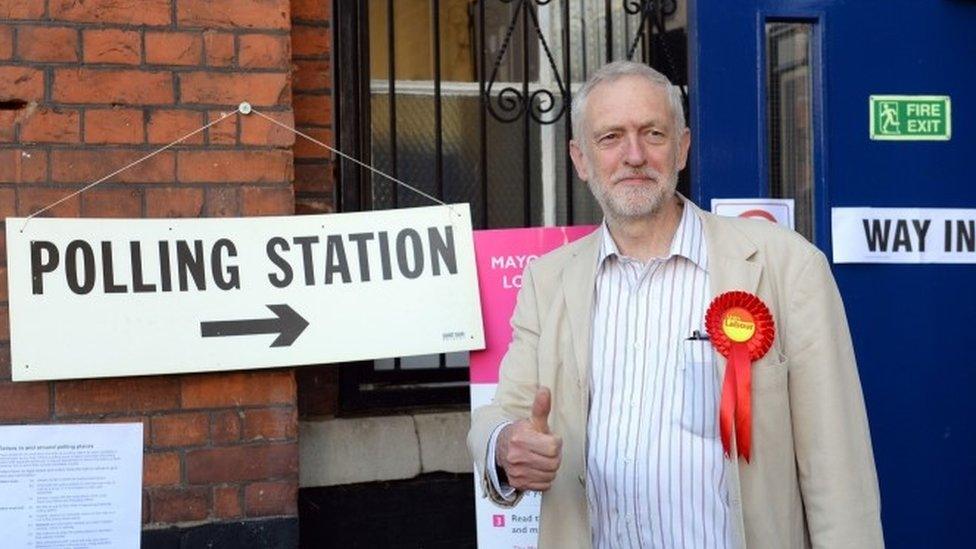
- Published6 May 2016
